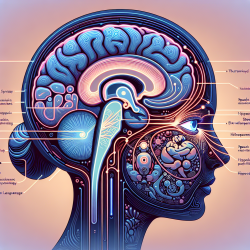The intricate relationship between music and brain function has fascinated researchers for decades. Recent studies have delved into how musicianship can enhance cognitive reserve and brain connectivity, offering insights that could transform educational practices. One such study titled Resting-state functional connectivity in lifelong musicians investigates the neural mechanisms underlying these benefits.
Understanding Resting-State Functional Connectivity
Resting-state functional MRI (rfMRI) is a powerful tool for examining the brain's functional networks (FNs) when a person is not engaged in any specific task. This method allows researchers to explore the intrinsic connectivity of the brain, providing insights into how different regions communicate during rest. In the study, researchers focused on four primary networks: the default mode network (DMN), sensory-motor network (SMN), auditory network (AUN), and visual network (VSN).
The Study: Musicians vs. Non-Musicians
The study compared lifelong musicians with non-musician controls to assess differences in functional network connectivity (FNC). Using a data-driven approach called independent component analysis (ICA), researchers found that musicians exhibited an increase in FNC with age, while controls showed a decrease. This suggests that musicianship may contribute to enhanced cognitive reserve, potentially mitigating age-related declines in brain function.
Key Findings
- Musicians showed increased FNC in DMN-AUN, DMN-VSN, and SMN-VSN pairs with age.
- Controls exhibited decreased FNC in DMN-AUN, DMN-SMN, AUN-SMN, and SMN-VSN pairs with age.
- The overall trajectory of FNC was positive for musicians and negative for controls.
Implications for Practitioners
For educators and therapists working with students, these findings highlight the potential cognitive benefits of incorporating music education into curricula. Here are some ways practitioners can apply these insights:
- Incorporate Music Education: Encourage students to engage in musical activities to foster cognitive development and resilience against age-related decline.
- Promote Lifelong Learning: Advocate for continuous musical practice beyond formal education to maintain and enhance cognitive reserve.
- Research Opportunities: Consider conducting further research on the impact of different types of musical training on brain connectivity and cognitive flexibility.
The Path Forward: Encouraging Further Research
This study opens new avenues for exploring how other high-demand cognitive activities, such as bilingualism or complex problem-solving tasks, might similarly enhance brain function. Researchers are encouraged to replicate these findings with larger participant groups and explore additional factors that contribute to cognitive reserve.
The integration of music into educational settings not only enriches cultural understanding but also supports neurological health. As we continue to unravel the complexities of brain function, music remains a promising tool for enhancing cognitive resilience across the lifespan.
To read the original research paper, please follow this link: Resting-state functional connectivity in lifelong musicians.










